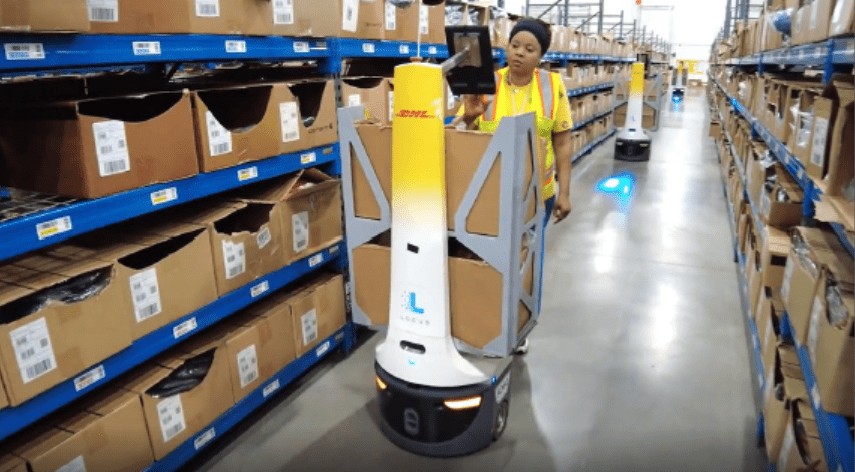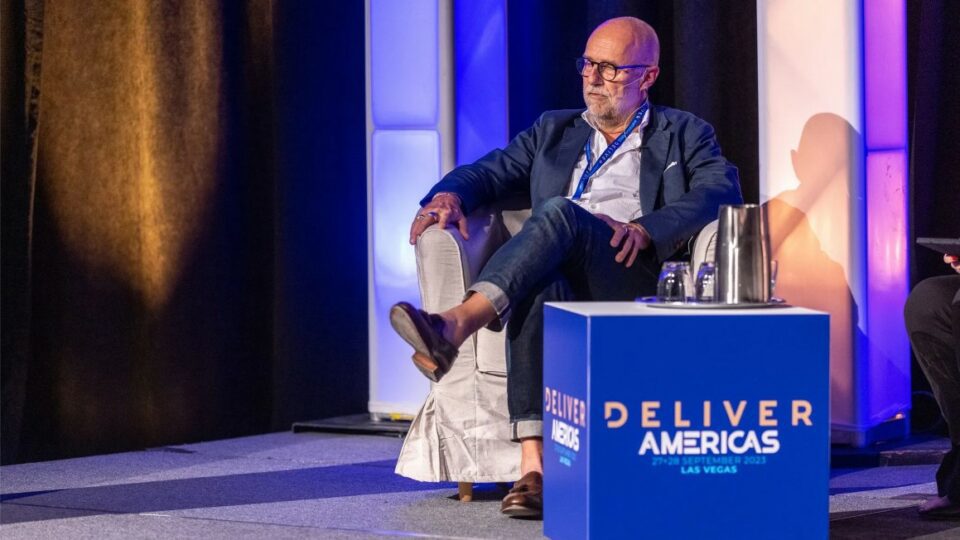For almost as long as retail has existed, the supply chain has contentedly operated behind the curtain. But that all changed with the COVID pandemic, the ripple effects of which brought supply chains into the spotlight. Now the supply chain is a top consideration not just for retail executives but consumers as well.
As geopolitical disputes and fragile infrastructures continue to disrupt the global flow of goods, sustainability and automation topped the list of topics among supply chain professionals at the Las Vegas debut of Deliver Americas, Sept. 27-28. This year’s conference and matchmaking event was the first to take place in North America and was put on by the organizers of Deliver Europe, which just marked its eighth year in Amsterdam.
Sustainability and the ‘Cost of Compliance’
The era of ESG (environmental, social and governance) is upon us, as customers, corporations and countries encourage, embrace and demand business practices that are socially just. As an event, Deliver Americas truly walked the walk, purchasing carbon credits to offset the flights attendees took to get to Las Vegas and featuring strictly vegetarian menus to lessen the environmental impact.
Bjorn Bengtsson, Chief Product and Supply Chain Officer at DTC men’s fashion brand Untuckit, underlined how this ESG focus is being driven by consumer demand: “In fashion, it’s obvious to a lot of us that the younger generation is intensely focused on sustainability strategies,” he said during a session. “Only the crazy people don’t have a sustainability and social responsibility plan.”
Bengtsson spoke about how traceability and transparency are creating a “cost of compliance” that retailers must account for. It’s expensive to hire lawyers to complete compliance forms, he said, and because of this retailers need teams of people in place to maintain sustainability standards. With obligations to produce everything from gas receipts to cotton bale numbers, companies are finding that it’s difficult to comply without software in place to access all the necessary documents.
Avedis Seferian, President and CEO of WRAP — a standards-setting organization that works with facilities to bolster compliance while promoting safe and ethical manufacturing processes — understands audit fatigue. To address the demand for supply chain social compliance due diligence, his company created a factory-based certification program, with nonprofit global experts inspecting and validating processes at factories all over the world. This empowers retailers to select apparel with confidence, from factories proven to abide by social compliance and enhanced due diligence processes. The outcome is that both factories and retailers have a clearer path to better practices.
Automation Goes Mainstream
Automation is no longer reserved for early adapters; it is now a mainstream retail solution, and more and more retailers are looking at how to integrate robotics into their workflow.

Brian Quigley, Director of Retail Global Accounts with Locus Robotics, outlined Carhartt’s journey to automation during a session at the event. Established in 1889, the global premium workwear brand needed to quickly scale and close its capacity gap to improve distribution and speed. Carhartt selected DHL Supply Chain for the job, and, seeing automation as the best path forward, DHL Supply Chain then brought Locus Robotics into the mix to optimize order profiles and decrease the amount of walking required of warehouse associates.
The deployment of LocusBots throughout the Carhartt warehouse led to an immediate boost in morale and a staggering 200% increase in productivity compared to before the automation solution was implemented. The robots were deployed and generating value within weeks, and the ability to scale the fleet up and down with this plug-and-play solution has empowered Carhartt to adjust and accommodate to peak sales periods.
When considering where and how to implement automation, companies should start with workflow bottlenecks, according to Onur Uranli, Director of Vertical Marketing at Honeywell, speaking at another session. He also pointed out that automation can help ESG initiatives, since improved processes often lead to a reduced carbon footprint as well.
Deliver Americas is one of three events put on by the Deliver Group every year. Deliver Europe will take place again in Amsterdam in June 2024, and the first-ever Deliver Asia will be held in Singapore on March 6-7, 2024.
Dalyce Semko is a communications professional based in Alberta, Canada. She was in attendance at Deliver Americas 2023 and covered it on RTP’s behalf.













